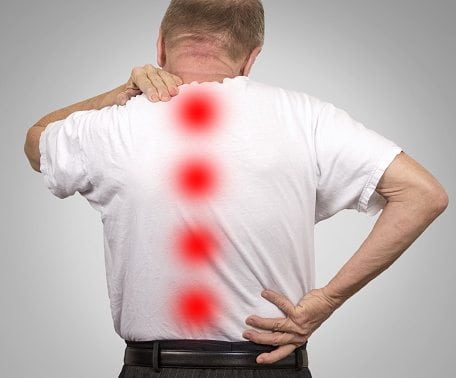<< Back
Spine Pain? It Could Be Spinal Stenosis!

November 03, 2017
Spinal stenosis is a narrowing of the spaces in the spine that results in pressure on the spinal cord and/or the nerve roots. This usually involves narrowing of one or more of the following three areas of the spine:
- The canal in the center of the column of bones (vertebrae) that the spinal cord and nerves run through
- The canals at the base or roots of the nerves that branch out from the spinal cord
- The openings between the vertebrae that the nerves leave the spine and go to the rest of the body
This condition is common in people over the age of 50 years of age, but may also occur in younger people who are born with narrowing in their spinal cord or who have suffered an injury to their spine.
What Causes Spinal Stenosis?
The normal vertebral canal provides adequate room for the spinal cord. Narrowing of the canal, however, can be inherited or acquired.
Inherited forms of spinal stenosis include being born with a small spinal canal, having a curvature of the spinal (scoliosis), or having a condition called achondroplasia, which involves defective bone formation that reduces the distance across the spinal cord.
Acquired forms of spinal stenosis are often gradual and worsen as we age. These can begin as either structural or inflammatory processes. Here are some examples of some of these degenerative causes:
- Bones and joints of the spine enlarge and project out from the vertebrae, also known as osteophytes (bone spurs)
- Herniated (bulging) discs can place pressure on the spinal cord or nerve root
- Spondylolisthesis, a condition where one vertebra slips forward on another, may be the result of degenerative changes or an accident
- Osteoarthritis can affect any joint in the body, including the facet joints in the spine (spondylosis)
- Tumors of the spine
- Trauma (accidents) that result in fractures to the vertebrae in the spine (i.e., burst fractures)
Treatment for spinal stenosis starts with a good diagnosis – which you can get by visiting one of the top-notch clinicians at the Connecticut Orthopaedic Institute at MidState Medical Center. Learn more here, or by calling 1.833.CTORTHO (1.833.286.7846).